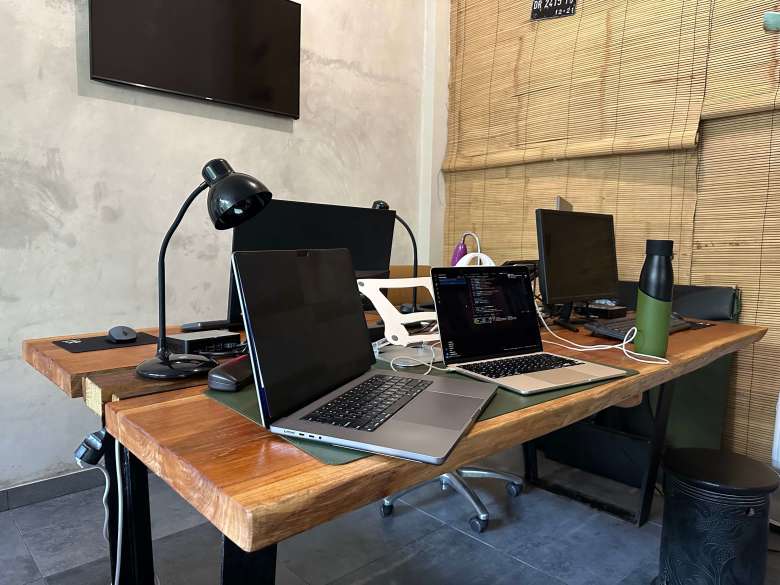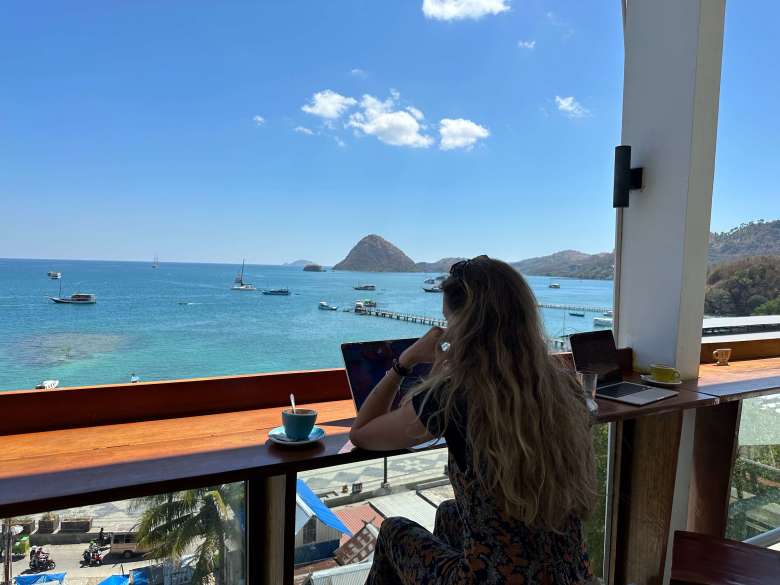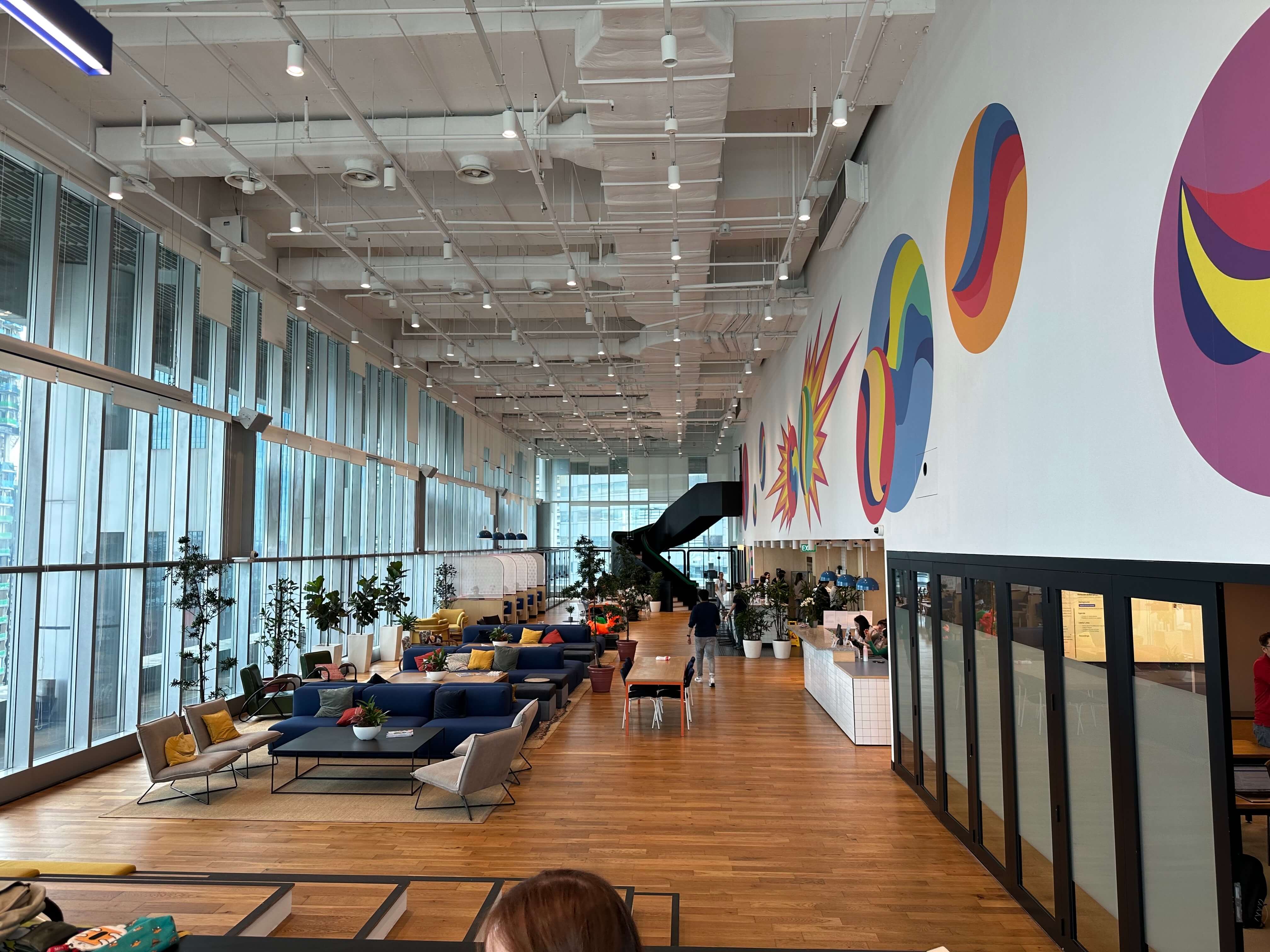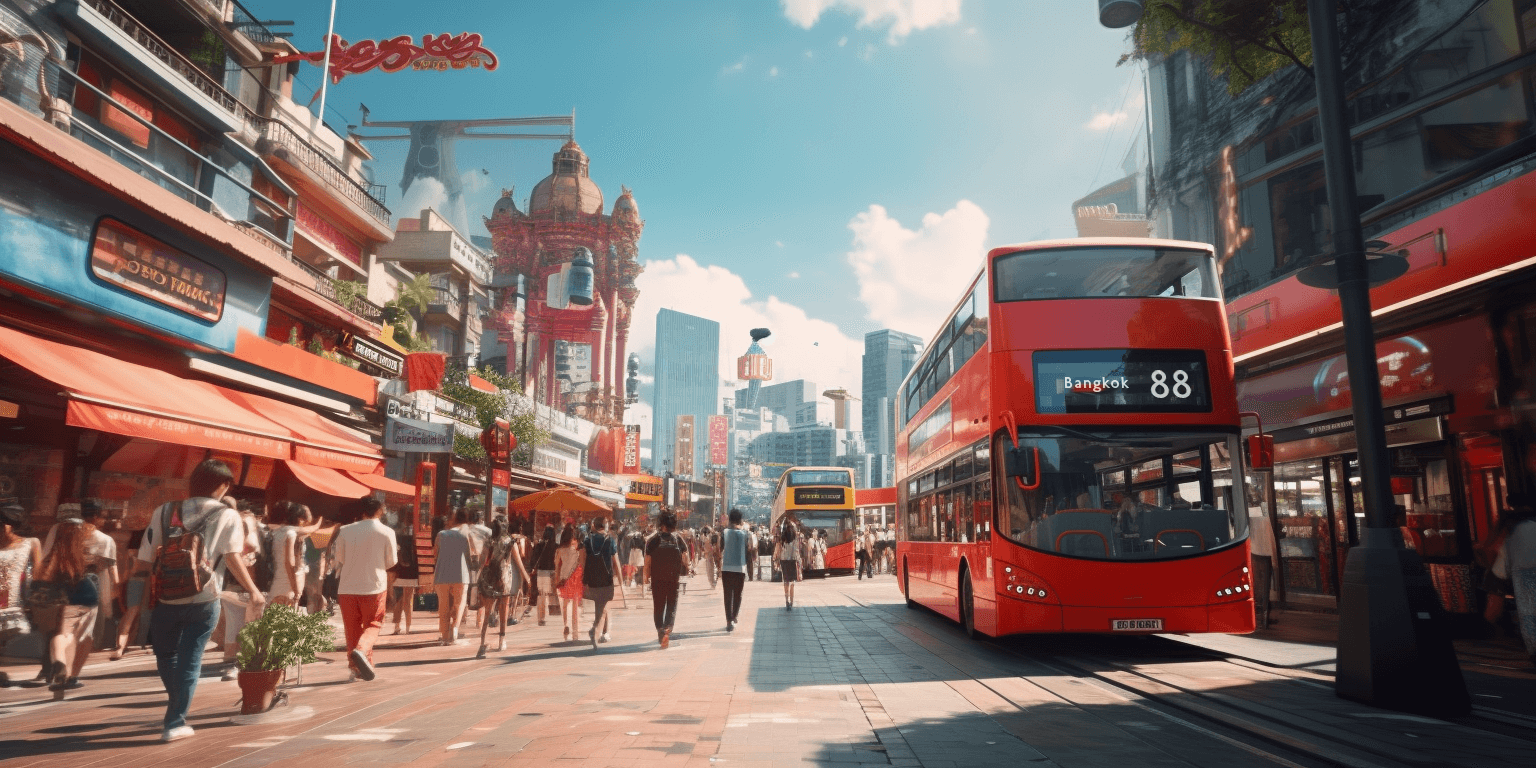When travelling as a digital nomad, you quickly realise how often you find yourself searching for a good place to work. Sometimes you may find that your stay, whether it is a hotel, a homestay, a hostel or an Airbnb, already has a great Wi-Fi connection and you may decide to simply get your work done directly “at home”. For many digital nomads though, this is often not the case and they will often find themselves in search of a cafe or a co-working place to work from. These options may not be always available: if you are going to a place where there isn't a community of digital nomads, you may find there is no co-working space to work from, and you have no other choice than to pick a cafe. In other places though you are spoiled with choice and you may find yourself a bit battled to decide where you want to go to get some work done.
So, in this article, I'm hoping to help make this choice a bit easier. I'll be sharing facts mixed with my own experiences to highlight the differences between working from a cafe versus a co-working space.
Internet connection is a digital nomad's lifeline
Let's tackle the most pressing concern head-on: the Wi-Fi. With our work revolving around digital technology, a stable and fast internet connection isn't just a luxury – it's a necessity. Assessing the internet speed and reliability at a place before actually settling in can be a bit of a gamble, particularly with cafes.
Typically, co-working spaces offer a more predictable environment in this regard. They are designed with remote work in mind, meaning a strong, stable internet connection is usually part of the package (no more losing your work every 20 minutes due to spotty Wi-Fi!). You'll often find this confirmed in their Google reviews, as it's a key factor for anyone considering a co-working space.
With coffee shops, it's a bit of a different story. Assessing the Wi-Fi reliability can be tricky until you set foot inside. After all, they are typically seen as a place for downtime rather than work, and online reviews most likely won’t have information about the stability of their Wi-Fi.
While cafes provide their unique charm, in terms of Wi-Fi reliability and speed, my vote unequivocally goes to co-working spaces. Reflecting on my experiences, I struggle to recall a single instance where a co-working space's internet connection let me down. Conversely, there have been a few instances where a cafe's Wi-Fi felt short of my needs.
Finding a suitable co-working space, often just involves doing a quick search on Google, but when none are available, I usually turn to workmode.co. So far, it's proven a reliable tool for finding work-friendly cafes. Another tactic I use is to search for "cafes to work from" on Google. This often leads to results where other folks have discussed their work experiences, including the Wi-Fi quality.
If these methods don't yield any promising results, the good old-fashioned way is to take a walk around the area. Keep an eye out for cafes bustling with laptop-wielding customers – that's usually a good sign it's work-friendly. To be extra sure, you can grab a drink, connect to the Wi-Fi and run an internet speed test. If the results are up to scratch, congratulations - you might have just found your perfect workspace!
Understanding the cost implications
Co-working spaces typically rent out hot desks or private offices, and naturally, these facilities come with a fee. Much like most rental agreements, prices vary based on the duration of your stay – daily, weekly, or monthly. Occasionally, you may even stumble upon packages like a 10-day bundle that you can utilise over 30 days. These are the upfront costs you're likely aware of or can easily discover before diving into your pocket, and they could be the only costs you incur throughout the day.
Heading to a coffee shop, you won't usually have to pay a cover charge for the table (thankfully!), but you're expected to make some purchases – it's only fair if you're planning to work there for a few hours or the entire day. Your expenditure at a cafe largely depends on your preferences, hunger levels, thirst, and of course, the type of cafe you pick.
Even if you spend your entire workday at a co-working space, you're likely going to want some food and drink. Many such spaces offer complimentary water, tea, and black coffee (no cappuccinos, sadly!) but meals will likely be an additional cost. Depending on the venue, you may be able to bring food from outside, or you might find that the space hosts its own kitchen, not allowing external food. If you're not keen on eating there, you can always pop out for lunch or dinner and return later.
Cafes known for their robust Wi-Fi typically attract digital nomads and office workers, meaning their food and coffee prices may be a notch higher than those of street vendors or local restaurants. There might be instances when the combined cost of a co-working space rental and external meals may work out cheaper than spending an entire day in a cafe, buying a couple of coffees, a meal, and perhaps a tempting cake or a Thai tea.
That said, I've seen folks who manage to spend an entire day in a bustling cafe with just a single juice purchase. While this can be feasible in many places, I personally find it a bit dismissive towards the cafe's business, as you're occupying a table that could serve multiple customers throughout the day. So, while it's understandable to be mindful of your expenses, it's equally important not to exploit the kindness and hospitality of the cafe's staff.
Lastly, unlike cafes, co-working spaces often offer better deals for longer stays – making them a more cost-effective choice if you plan to work from the same place for a week or more. So, if you're someone who enjoys switching up your environment, cafes might suit you better. But if you find yourself more focused and less distracted in familiar spaces, a co-working setup might be more suitable for you.
Location
Let's talk about the location aspect; digital nomads are often stereotypically pictured working on a laptop with a serene beach as their backdrop. In reality, this isn't usually the case.
When discussing location, two aspects need consideration: the physical whereabouts and the interior design and amenities of the place. Coffee shops, often fitting into smaller spaces, can pop up in stunning locations – by the sea, tucked into charming corners of a town, or perched on a hill offering breathtaking views. This naturally makes them attractive to the adventurous spirit of digital nomads. Another point in cafes' favour is their sheer number compared to co-working spaces. You have a better chance of finding a location that fits your preferences and acceptable commute time. In contrast, co-working spaces are fewer and farther between, particularly in smaller towns or remote islands, limiting your options.
An often-overlooked aspect is access to power outlets. Depending on your device, you might need to plug in after just a few hours of work. Co-working spaces usually excel in this regard, featuring numerous universal outlets. It's unlikely you'll find yourself desperately searching for a charging point. Cafes, while they sometimes offer a plug or two, may not be as accommodating. Outlets may be already in use, out of order, or inconveniently located, especially if you have to fit in a chunky universal adapter.
Some co-working spaces also throw in perks like a pool table or a table tennis table – a welcome distraction for quick breaks and a great way to strike up conversations with fellow nomads. Such amenities can also be found in cafes, but they're usually not paired with a robust Wi-Fi connection.
In essence, both co-working spaces and cafes come with their unique set of advantages and trade-offs. Depending on what you value more – be it convenience, ambiance, or amenities – your ideal workspace could swing either way.
What are the social opportunities of co-working spaces vs cafes
One of the significant aspects of the digital nomad lifestyle is the sense of community it can foster. Meeting and interacting with fellow nomads can greatly enhance your overall experience. If building connections is high on your agenda, co-working spaces have the edge. They often host social events such as community lunches, quiz nights, movie nights, and more. If you're someone who loves meeting new people but perhaps feels a bit shy about initiating a conversation, these gatherings can be a perfect icebreaker. You're in a setting where everyone is there to make friends, and you'll often find others who are more than willing to engage you in conversation or include you in an ongoing discussion.
Cafes, though traditionally social venues, might not offer the same ease of connection when you're there to work. Particularly if you're not the type to strike up a conversation with a stranger, it might feel unconventional to randomly befriend someone at the bar, especially when they appear to be working. The concern of interrupting someone engaged in something important can deter those casual, friendly interactions.
So, if forming new friendships is on your agenda, a co-working space may be a more fitting choice. They are often designed with community in mind, and many offer specific opportunities to connect, socialise, and grow your network amongst like-minded digital nomads.
Privacy and security
A critical concern for many professionals is maintaining privacy while working. It could be driven by the nature of their work, compliance with specific legalities, or simply personal preference. Picture this: someone is working with sensitive health or financial data of their clients, where the risk of unintentional disclosure is high. Here, co-working spaces come into their own, offering an advantage over cafes. While the communal spirit of a cafe might not lend itself well to private work, co-working spaces frequently provide options like private offices or booths, perfect for those moments when you need complete seclusion.
💡 If privacy is a primary concern of yours, I would strongly advise you to invest in a privacy screen protector. These specialised protectors can easily be applied to your laptop or tablet screen and are designed to limit the viewing angle. When viewed from the side, the screen appears pitch black, thus keeping prying eyes at bay. While this won't protect against someone staring directly over your shoulder, it's likely you'd notice such an intrusion. Plus, you can always try to choose a seat with a wall behind you, further enhancing your privacy. Brands like 3M and Kensington are known for offering quality privacy screen protectors that could serve this purpose well.

Screen with vs without protector
Regarding security, two different dimensions must be weighed in: physical protection for yourself and your devices, and network security. Physical security is invariably stronger in co-working spaces. With measures like CCTV surveillance and restricted access, they drastically reduce the risk of theft, an advantage when you need to leave your devices unattended momentarily (not something I would personally recommend). Plus, the crowd in co-working spaces is typically smaller and more accountable than in cafes, creating a safer environment for your belongings.
Network security, on the other hand, requires cautious measures, regardless of where you are. A venue with unprotected Wi-Fi or an easily guessable password poses a clear risk. Nevertheless, even a secure password is not a foolproof barrier against malicious users. This is why I strongly advocate for the use of a VPN while connected to public Wi-Fi, to ensure your data is encrypted before leaving your device. It provides an essential safeguard against potential cyber threats like a man in the middle attack or packet sniffer threats.
Some co-working spaces may implement robust security policies and even monitor the network for malicious activity, but it's always best to take personal responsibility for your digital safety, regardless of your work location.
Accessibility hours
Last, but certainly not least, the accessibility of a working space during different hours of the day may be a significant concern for many. Whether you're a night owl who prefers to work late or you're coordinating with colleagues in a distant timezone, having access to your workspace at unconventional hours could be essential. If this resonates with you, I highly recommend conducting thorough research before choosing a location, to avoid any unpleasant surprises. While 24-hour cafes might be a rarity (and perhaps not the ideal work environment), co-working spaces might be more accommodating. However, it's worth noting that finding a 24-hour co-working space can be a challenge, with many closing their doors by 6 pm. Larger chains like WeWork may offer round-the-clock access, but often only to those with a monthly or longer membership. As a rule though, we always try to avoid chains which includes co-working chains. That said, based on my personal experience, I have often come across co-working spaces that operate 24 hours a day when I have found myself staying in locations that have established themselves as hubs for digital nomads, such as Chiang Mai, Koh Lanta, and Lombok.
To avoid disappointment, always inquire about the closing times before making your payment. That way, you can determine whether the place meets your needs or if you should continue your search elsewhere.
Conclusion
The ideal work environment is intrinsically subjective and varies greatly from individual to individual. While I have a fondness for co-working spaces, I can't help but recognise the charm and benefits of a cafe. In my experience, there have been times when I've found cafes with impeccable Wi-Fi, breathtaking views, and delicious food.

Bea working in a cafe in front of the sea
Whatever your choice, the important thing is to feel comfortable and productive in an environment that promotes concentration and creativity. If you're still on the fence and weighing the pros and cons of each option, I hope this article has provided a clear view of the peculiarities of each option, as well as giving you an overview of the advantages and potential challenges. My advice? Dive in, adapt your choice to your needs, experiment, and find the environment that resonates best with your style and work requirements.


